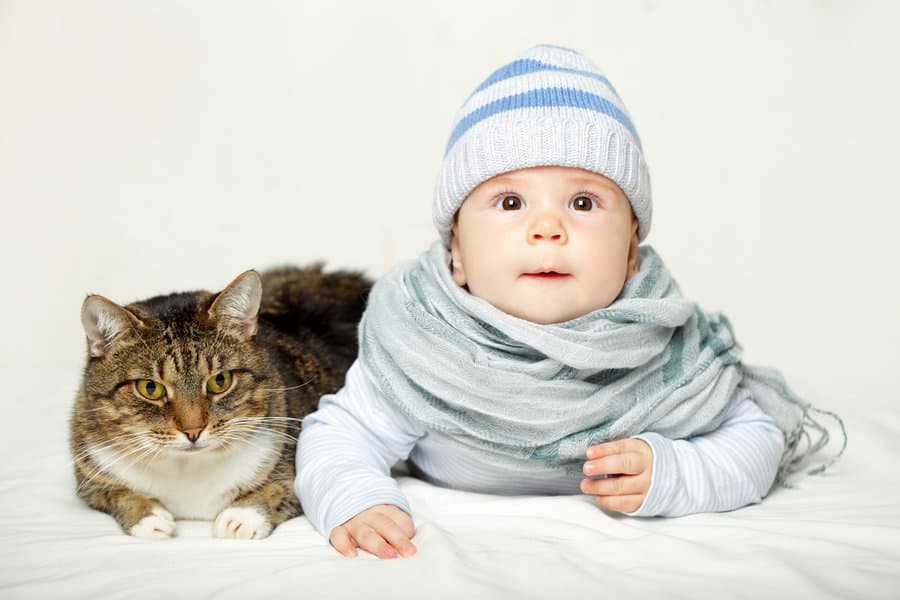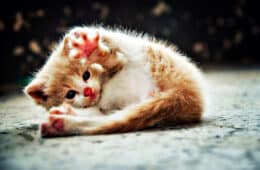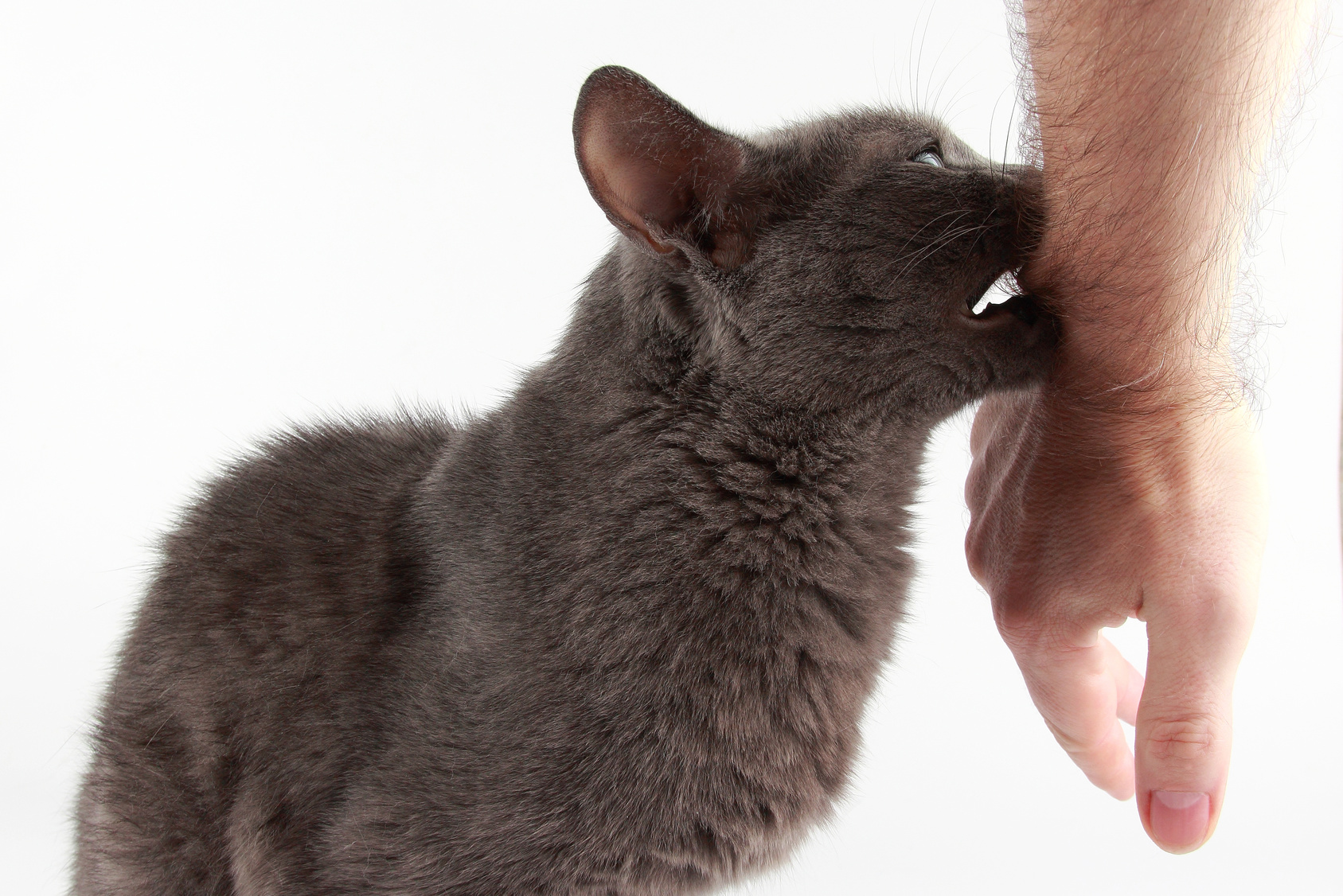Congratulations on your growing family! If you're an expecting parent and own a cat, you might be wondering how the two will get along. Fear not! We're here to address your questions about babies and cats cohabiting peacefully.
We'll explore potential concerns, and the health benefits, and offer tips on introducing your cat to the new family member. And guess what? You might even find that your little one and your pet become the best of pals.
Use this guide to make the transition smoother and put your mind at ease. Let's get started!

Cats and Babies: A Harmonious Household
New baby on the way? What a thrilling time! For cat-owning parents-to-be, especially those experiencing parenthood for the first time, you may have a whirlwind of thoughts about your pet and your baby living under the same roof.
But rest assured, in the vast majority of situations, babies and cats form a delightful bond, with the cat often taking on a protective "big sibling" role.
Yet, as a new parent, it's absolutely normal to have a heap of worries, with safety being a prime concern.
Are cats dangerous to babies?
A well-adjusted pet cat is no more dangerous to a baby than an older human sibling. In fact, probably far less so.
Just like you wouldn't leave a baby alone with a toddler, you have to supervise all interactions between your baby and your cat. That goes for bedtime as well.
Even if you co-sleep with the baby, toddlers, and pets should be kept at bay as they can inadvertently suffocate a newborn baby in his or her sleep. The same goes for blankets, teddy bears, and pretty much any soft object around the baby. Read more about keeping your baby safe during sleep.
If your cat has a behavioral problem, especially one related to aggression, consult with a pet behaviorist about ways to solve the issues before the baby arrives.
You can read more about cat aggression here. For your own peace of mind, remember that babies are highly unlikely to trigger aggressive behavior in cats because they are relatively immobile and less threatening to the cat.
Millions of babies grow up in the company of pet cats and are probably happier and healthier for that. Studies show that having a cat or dog in the home may reduce the risk of allergies in children.
I'm pregnant. Should I worry about toxoplasmosis?
Toxoplasma gondii is a parasite that can severely harm a fetus. Cats that have an active toxoplasma infection shed the parasite's oocysts in their feces. In order for a pregnant woman to become infected, both of the following would have to happen -
- The cat has an active infection. Cats can become infected only by eating prey or raw meat. The active infection may have no symptoms, but it only lasts for a few weeks and then subsides.
- The pregnant woman needs to ingest the feces of the cat during that period of active infection.
This means an infection from a cat is highly unlikely, as long as the cat is kept indoors only and is fed canned or dry cat food. Just to keep on the safe side, the CDC offers this guideline for pregnant women:
Do not touch or change dirty cat litter.
Have someone else do it. If you must change the litter yourself, be sure to wear gloves and wash your hands afterward. Dirty cat litter might contain a harmful parasite. Learn more about toxoplasmosis.
There are other ways to catch toxoplasmosis, as well as other infections that can harm your baby (and are entirely unrelated to cats). Please take a moment to read this entire page by the CDC for more safety guidelines.
Should I keep the cat out of the nursery?
There is no reason to keep your cat out of the nursery. This is part of your home, and your cat needs to feel comfortable there. In fact, encourage your cat to spend time in the room while you're decorating and preparing things.
Spread some of the baby powders and lotions on you and around the room, so Kitty can get used to the scents too.
You may want to keep the cat out of the baby's crib though, as you should never have any soft object next to a sleeping newborn baby, and that includes a furry cat. Simply put up a baby crib tent or mosquito netting to keep the cat out.
Whatever happens, never shout at your cat or show signs of stress when Kitty is in the nursery or around any of the baby's items. You want to keep the cat's associations with anything related to the baby as positive and calm as possible.
Congratulations! The Baby is here!
SIGN UP FOR THECATSITE'S EMAIL UPDATES >
Are there any health risks or benefits for the baby?
A well-cared-for family cat poses no particular health risks to your baby. Make sure the cat has no fleas, but don't freak out if you find any. They can be easily treated and are not particularly dangerous to the baby.
Vaccinate your baby according to schedule. By the time the baby begins to crawl around your home and may get scratched after yanking a furry tail, she or he will be protected from tetanus, a rare but very dangerous disease that can be transmitted through any break in the skin.
There are potential health benefits to having a cat around! Some studies suggest having a pet in your home has some health benefits for your baby, including lowering the risk of asthma and some forms of allergies.

Will the cat be jealous of the baby?
No. Cats are probably incapable of comprehending jealousy in the way we humans do. Your cat may display different behaviors once the baby is born, but these are indicative of heightened stress levels and not jealousy.
Consider the situation from the cat's point of view. The presence of a new human in the home is something most cats find easy to handle (unlike the presence of a new pet). In fact, Kitty may be nearly oblivious to the actual presence of a new human being, especially one so small and immobile.
That said, the changes in the household are not something any cat can ignore, and changes always equal stress. Consider all of the things that will change in the cat's environment once the baby arrives -
- New sounds - These include not just the baby's crying, but also various new instruments you may be using.
- New smells - Again, not just the baby's, but all of the lotions, creams, powders, baby soaps, and even food that come along with it.
- A different time schedule - Your cat may be surprised to find that you have turned into a semi-nocturnal creature too!
- A different set-up of furniture.
- Visitors coming more frequently than before.
- Overall increased stress levels for humans - You're likely to become busier than ever and possibly moody.
That's a lot of changes to take in for a cat, and the added stress could potentially lead to behavior problems.
Experience shows that most cats adjust to the new situation fairly well, but a more sensitive feline may react to the stress by developing some form of problem behavior. This doesn't mean Kitty is jealous, just overwhelmed and stressed.
Read more about stress in cats and about ways to help cats fight stress.
How to help a cat adjust to a new baby?
Fortunately, there's a lot you can do to lower your cat's stress, and most of that can be done prior to the baby's arrival. Here are some tips:
1. Keep calm and carry on.
Seriously, keep calm around the cat and never reprimand him or her around the baby or around any of the baby's belongings.
You want to make sure the cat associates the baby only with positive things. In fact, it's a good idea to avoid reprimanding or punishing the cat at all times. Read more about how to teach cats to behave without resorting to negative feedback of any kind.
2. Allow the cat to inspect the nursery and everything related to the baby.
Kitty is likely to spend some time sniffing things and that's ok. Make sure you stay calm and relaxed as your cat gets to know the new scents. Talk to the cat in a happy relaxed voice and consider offering some treats to make the experience more positive.
3. Don't indulge your cat with extra attention
You probably won't have time to lavish this amount of attention on your cat once the baby arrives. You want to avoid sudden changes so spend time with your cat, but only to the extent you'll be able to once the baby arrives.
That can still be quite a lot! Having a cat snuggle up to you as you nurse or feed a baby is precious, and you will probably benefit from petting the cat and listening to her purr away.
4. Have the cat meet other babies
If you happen to have friends with a new baby, have them visit your home. Don't call Kitty over or make any "forced" introductions. Whatever you do, do not pick up the cat and hold her close to the baby. Just allow natural curiosity to take its course, and if nothing happens, that's ok too.
5. Let the cat smell the baby
If possible, while the mother and baby are still in the hospital, have Dad bring home a piece of clothing that the baby wore. Let the cat smell that and watch for his or her reaction.
How to introduce the baby to the cat?
The best way is to avoid a fuss. No need for any special introductions here, as there is no reason for your cat to react in any special way to your new bundle of joy. To the cat, there is nothing threatening about this tiny new human. In fact, most cats enjoy snuggling up to a warm immobile baby. Just make sure not to leave the two unsupervised and you should be ok.
Remember to remain calm. The only situation in which cats may feel threatened is if you shout at them or otherwise frighten them when they see the baby. Avoid that and you should be ok.
What happens as the baby grows up?
As your baby grows up and becomes more mobile and active, you have to keep your cat's well-being in mind. Make sure Kitty is never cornered and can always find a safe place to nap where your baby can't reach her.
Anchor heavy cat furniture and cat trees safely to the wall to prevent a curious toddler from toppling one over. Invest in cat shelves and other ways to allow your cat to keep a safe distance from your growing baby if she or he chooses to.
Babies grow up slowly, and cats usually adjust well to the new presence. Teach your toddler to respect your pets and not to yank any of their body parts, and they should get along just fine.
Your child will benefit from growing up with pets and have lifelong memories of the furry friend that was there during the first years of his or her life.
A Harmonious Conclusion: Embracing the Journey Ahead
Bravo on the latest addition to your family! The journey ahead might seem filled with questions and unknowns, especially when it involves the cohabitation of your baby and your cat. But remember, this journey can be as delightful as it is challenging.
As we've navigated potential concerns, explored health benefits, and discussed tips for a smooth introduction between your cat and baby, it's become clear that these two can become fast friends in no time.
Take the advice shared here and use it as your go-to guide. It's time to step into this new phase with confidence. No matter what, remember to keep the environment as stress-free as possible for both your child and your cat.
As your little one grows, so will their bond with their furry friend. This will bring not just joy, but a lifelong lesson in compassion and care for other living beings.
Don't forget, you're not alone in this. Feel free to share your questions or unique experiences with us. After all, each baby, each cat, and each family is wonderfully unique. Let's embrace the journey, one day at a time!
SIGN UP FOR THECATSITE'S EMAIL UPDATES >
Did we miss out on any questions? Or maybe you need advice about your particular cat? Post your question in the cat behavior forum to get answers from our experienced community members.
Note: We may get commissions for purchases made through links on this page.




6 comments on “Cats And Babies – All Your Questions Answered!”